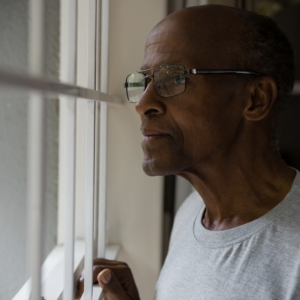The Continued Epidemic Of Loneliness: Individual And Systemic Responses

The Continued Epidemic Of Loneliness: Individual And Systemic Responses
March 20, 2024
It’s likely no surprise that loneliness continues to be a significant public health concern in the United States. As we reported last year when Surgeon General Vivek Murthy raised alarms about the public health crisis of loneliness in our country, loneliness is not only a subjective individual feeling of disappointment or distress about relationships in one’s life, but it can take a significant toll on one’s physical and cognitive health, including raising your risk for heart disease and dementia. A new study out of Amsterdam University Health Center and the University of Glasgow, published in The Lancet Health Longevity, raises additional concerns about the health effects of loneliness. According to the results of this study, there is a direct link between feelings of loneliness and physical frailty. We already know that being physically frail and having less mobility likely leads to less social engagement and thus people becoming lonelier. What this study reveals is that this link is bi-directional, meaning loneliness not only can result from frailty, but loneliness can also be the cause of frailty. You can find out more about this study by reading here.
We also have new data suggesting that Americans, particularly those ages 45-65, may experience more loneliness than their counterparts in Europe. According to a new study from The American Psychological Association, middle-aged adults in the United States report significantly higher levels of loneliness than their counterparts in other countries. Given the health risks that can result from loneliness, these data are concerning and lead to questions of why this is, and what can be done in response. Researchers suggest that this demographic group, caring for both younger and older family members, may also be burdened by US cultural norms and socioeconomic factors (including such factors as income inequality, job insecurity, weaker safety nets, and an individualistic approach to life matters). Furthermore, living in our current American society, where much time is spent in divisive media chambers, likely contributes to the societal-wide problem of loneliness. We are a country that is hyper-focused on differences rather than commonalities that bond us so that connecting with others becomes more difficult and may feed into loneliness. This environment suggests that not only are individual responses necessary to address loneliness but that more systemic policies are needed at the state and federal levels. As an example, the county of San Mateo in California, having found that 45% of its population suffers from social isolation and loneliness, recently declared a local public health emergency to address the problem. Local, state, and federal government agencies and programs all need to work on creating opportunities for social networking and lowering the incidence of loneliness.
Making the problem of loneliness even more difficult is the stigma that is attached to feeling lonely. Many are reluctant to even admit or discuss their feelings of loneliness because it is viewed with stigma or because of shame from feeling lonely. While this sense of stigma and shame varies by culture, gender, and age, researchers have found that women report more of a sense of shame about loneliness than men, and may therefore be more reluctant to admit to it or seek out help.
But for those willing to seek out or explore helpful options, what choices exist to address feelings of loneliness? We’ve previously addressed such possibilities as pet adoption, intergenerational friendships, volunteering, or finding hobbies of interest. Psychological experts have additional suggestions to consider. In a recent article in Time, therapists discussed what they themselves do when feeling lonely, including meditation, pulling out old photo books, engaging in people-watching, and sending voice messages to friends or loved ones. To find out more, click here.







